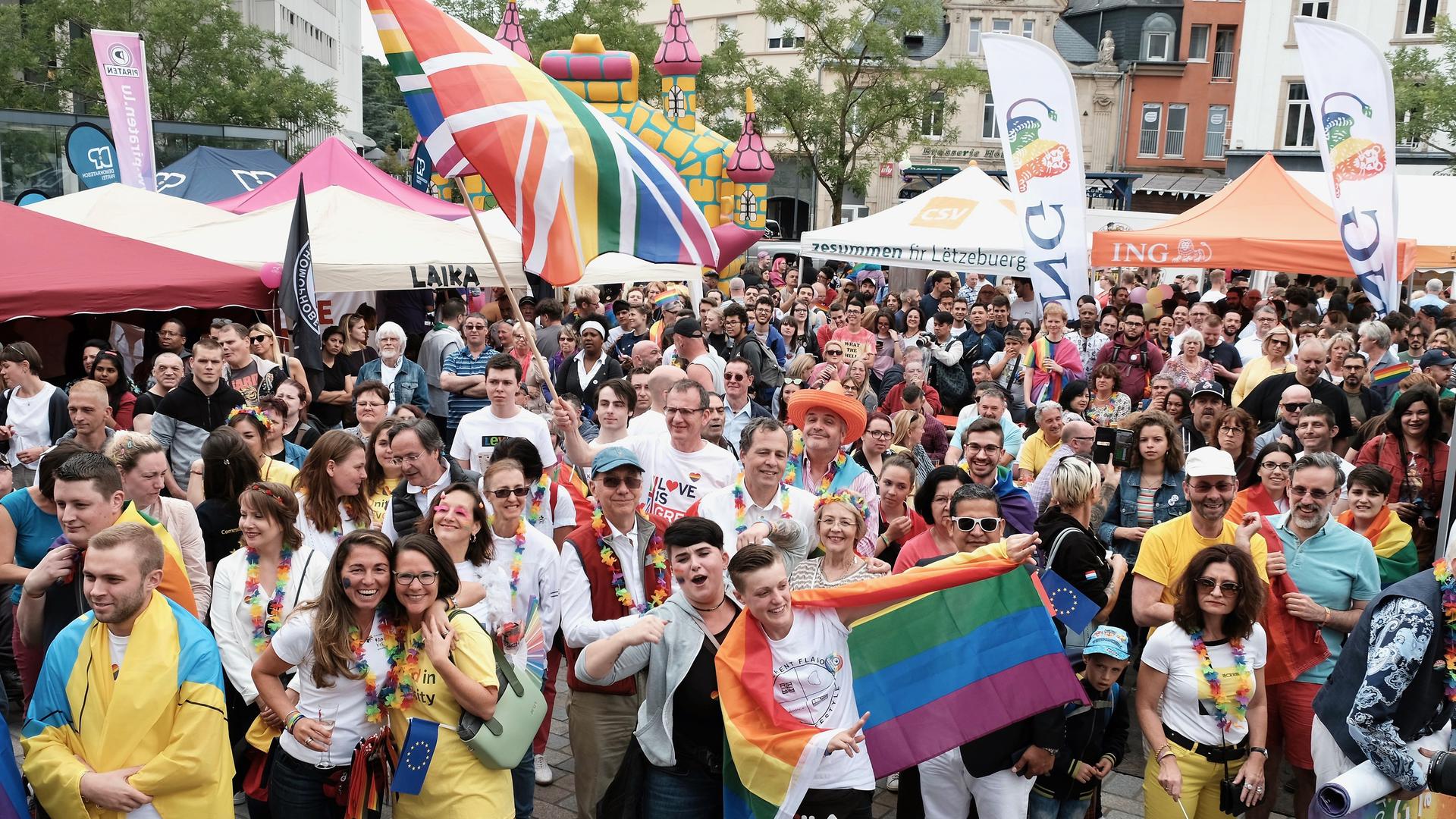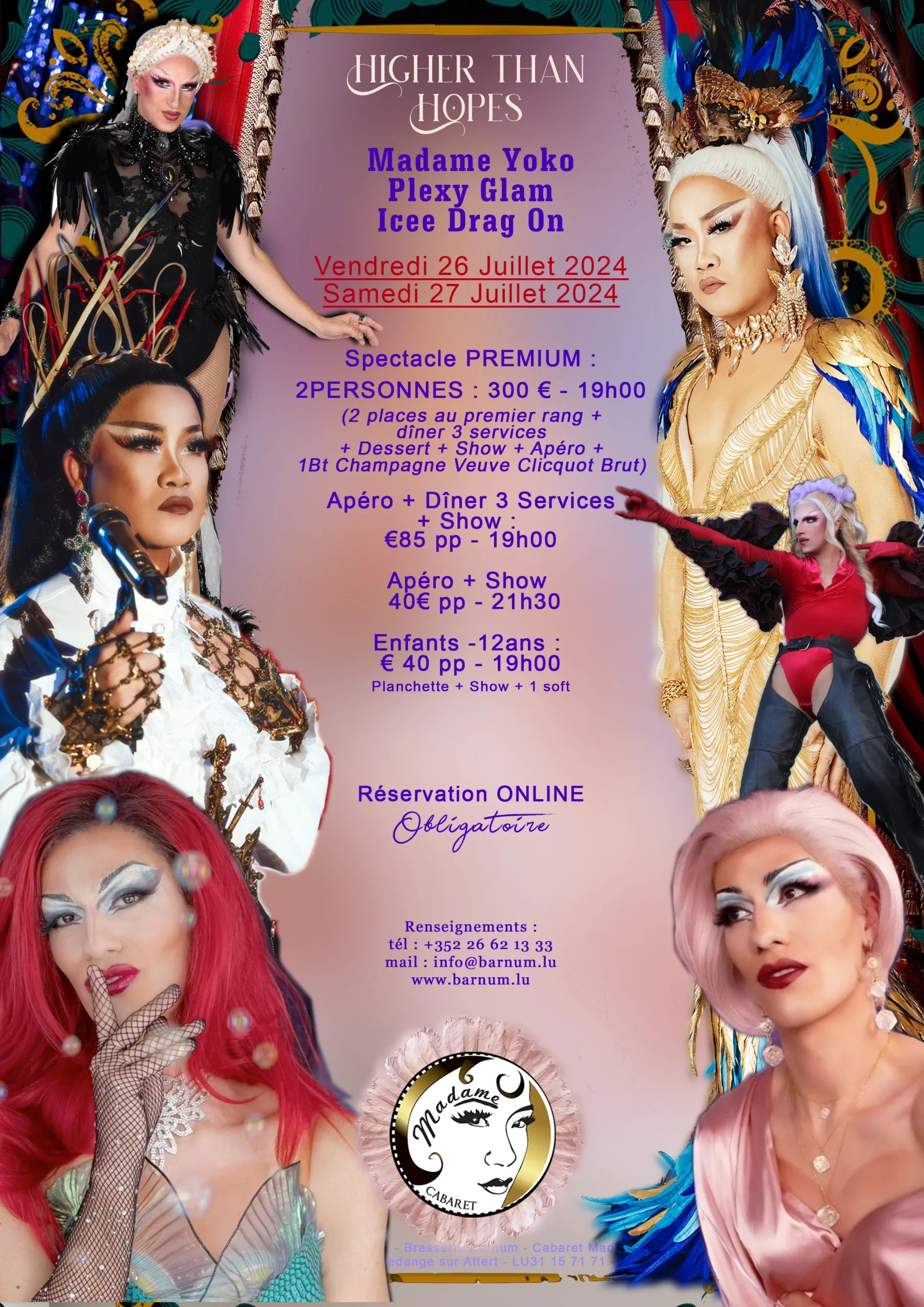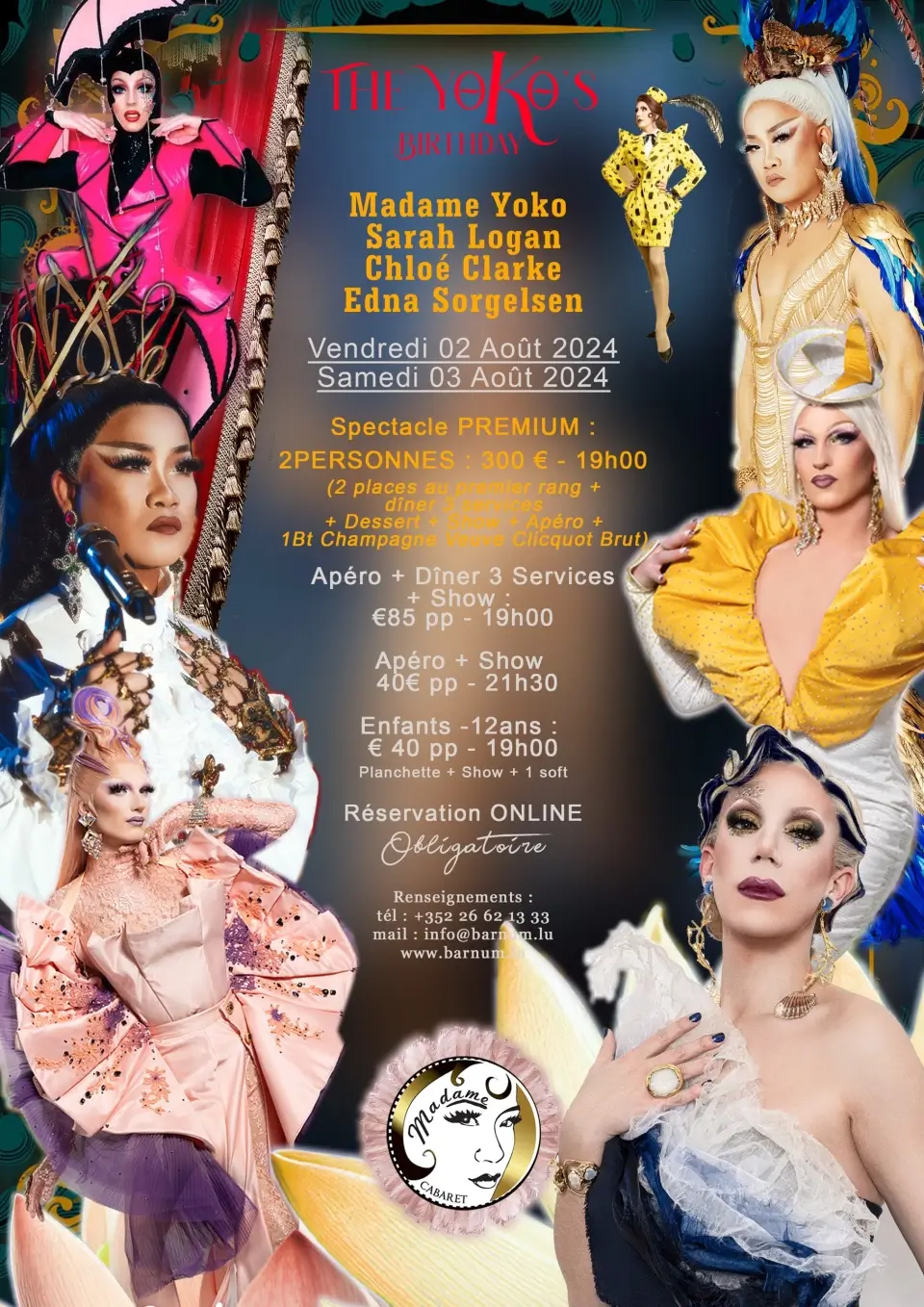Many companies support the notion of LGBTQ+ equality, but financing events can be a struggle

For a country run by a gay prime minister, Luxembourg has little to offer to the LGBTQ community © Photo credit: Lucien WOLFF
For a country run by a prime minister whose same-sex marriage forms a crucial part of his public identity, it can be surprisingly hard to discover signs of queer life in Luxembourg, businesses and newcomers say.
Since the last gay bar in the capital - the Bar Rouge - closed in 2021, most Luxembourgers identifying as LGBTQ+ have resorted to travelling to other countries for events or venues dedicated to their lifestyle.
“When my husband and I moved from Washington five years ago to Luxembourg, we were very surprised by the lack of LGBTQ+ visibility in the capital,” said Dušan Kovačević, who works as a governance officer at the European Stability Mechanism, an EU agency.
“The pride week is great, but it feels like since other companies participate, most companies have to, and once pride week is over, there is no real support for LGBTQ+ events throughout the year,” Kovačević said in an interview.
Davide da Silva is among the few people who still regularly organise LGBTQ+ events in the country. Together with his friend Thibault Milan, he organises the Fairytails parties, which take place a few times a year and have brought thousands of queer people in the city of Luxembourg together.
But finding financial support can be a struggle, they said.
“It’s clear that for some businesses, gay parties are seen as sleazy, and that’s why we don’t get sponsored,” Milan said. They are often given the cold shoulder, the two men said, and a mainstream culture venue in the capital once said it did not want to be associated with a "trashy event".
“We feel like Luxembourg is a country that portrays itself as being “gay friendly”, yet it doesn’t do much for the actual community here,” da Silva said.
Marc Angel, the head of the Luxembourg City tourist office (LCTO), rejected criticism the city was not doing enough. Yet he also agreed that the LGBTQ+ community lacked visibility, and conceded the city does not have a diversity budget - although it was now considering doing so.
"I don’t think there’s enough visibility promoted for local LGBTQ+ people in Luxembourg, but I do think people in the community could themselves do more,” said Angel, who is also a social-democrat member of the European Parliament and who happens to identify as a gay man himself.
From a technical point of view, Luxembourg does well in international rankings. One group, ILGA-Europe, ranked it fourth on its 2021 "Rainbow Map", looking at equality and transgender policies and discrimination. But in practice, few people would select Luxembourg out as a destiny for Pride events - in contrast to neighbouring countries such as the Netherlands or France.
Stuff like that
Luxembourg has an overall budget of €195,000 to implement a national action plan for the LGBTQ+ community, a spokesperson at the ministry for family affairs said. Measures will target education, measures to avoid discrimination at work, in medical care and equal rights for intersex people.
Yet the country has less than a handful of privately run businesses that identify as queer. These include Barnum, a drag show cabaret - a form of entertainment in which men and women dress up in traditionally extravagant costumes of the opposite gender and sing or lip synch to songs.
Founder Ian Lejeune and his partner Alex Goedert had to turn to friends and family members - and even a Catholic priest - when they were setting up Barnum in 2019, as every bank had turned them down for a loan.
“A man rolled his eyes at us and didn’t consider us as a serious business at all, once we introduced the idea of a cabaret,” Lejeune said. And Lejeune - who also performs under the drag name of Ma Dame Yoko - told how a top Luxembourg bank had refused a €100,000 loan for their joint business, quoting a policy of not offering credit for "stuff like that".
Once opened, the cabaret filled up with customers at nearly every show, and it was only when the pandemic closed down nightlife that Lejeune and Goedert started racking up losses as they had to cancel their shows.
Any bank refusing a loan based on a client’s sexual orientation would be committing a disciminatory act punishable by the law, the Luxembourg Bankers’ Association (ABBL) said, when asked to react.
“Diversity is a value often shared amongst banks, and the finance sector is a rather open-minded space,” Catherine Bourin, member of the management board the Luxembourg Bankers' Association said.
Lip service
Rosa Lëtzebuerg, a group backing the interests of the local LGBTQ+ community, confirmed the idea that companies have no problems backing a broad notion of equality, but that they shy away when things become too visibly queer.
Some multinationals in Luxembourg invest a significant sum in “rainbow advertising” - which typically refers to the act of displaying the LGBTQ+ flag in company logos or displaying certain decor representing the community- during Luxembourg’s Pride week in July, said board member Andy Maar.
“Lighting up buildings is certainly a nice gesture, but it only marginally benefits the community, considering that pride events and all other events throughout the year are managed on a minimal budget,” he said.
His organisation has suggested setting up a "Rainbow House" because so many bars and venues are struggling with high rents in the country - especially in the capital city - which come on top of the pandemic crisis.
The venue would be managed by people in the LGBTQ+ community, and feature a bar. But the project is not expected to be completed before 2024 because of a lack of budget and organisational resources, Maar said.
The organisation’s main donors consist primarily of long-time members, including Enovos, ING, BCEE, Raiffeisen and HSBC.
Many of those members have signed Rosa Lëtzebuerg’s diversity charter, committing them to focus on diversity, a tool that is often used in order to find sponsors. The charter’s signatories include large firms such as Arendt & Medernach, Axa Assurances and J.P Morgan.
But it is often still not easy to find sponsors for events. “It happened that they said that the event did not appeal to their desired target group,” Maar said.

